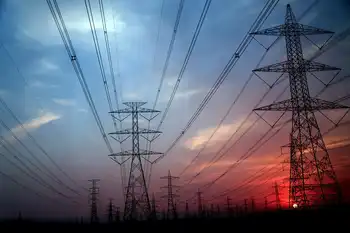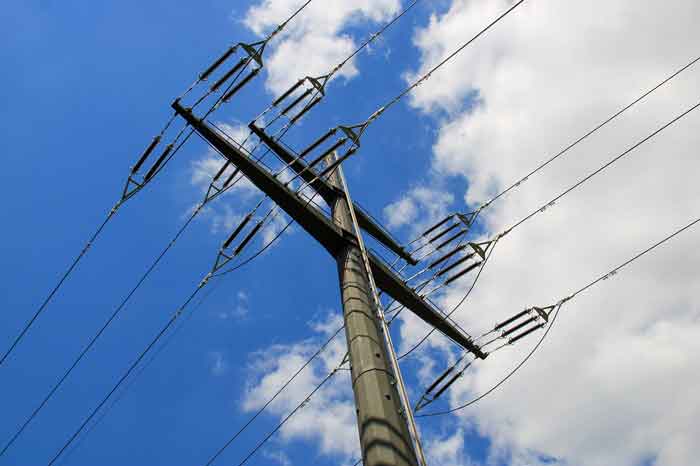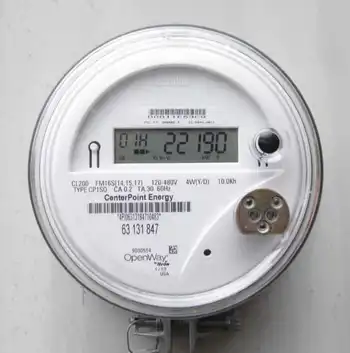Obama may revive carbon-capture project
The work is already under way, and has been boosted with $3.4 billion in the stimulus plan. The DOE is expected to announce soon whether it will use $1 billion of that money to revive FutureGen, a planned coal-fired power plant in rural Illinois that would be the first in the world to capture its carbon dioxide emissions and bury them deep underground.
Universities and businesses have been testing carbon capture and storage in other places, including Southern Co.'s project at a plant in Mississippi and research in oil and gas wells in Texas, but FutureGen would be the first commercial-scale demonstration.
Experts say that demonstrations such as FutureGen are needed to answer questions about what the best technology would be and how to lower the technology's cost so that it wouldn't result in much higher electricity bills.
The stakes are high, and so are the costs.
If the United States and international partners can find a cost-effective way to remove carbon from coal, the coal industry would be guaranteed a future even if the world takes steps later to prevent severe global warming. Finding the right technology, however, and proving that it can be widely used won't happen quickly or cheaply.
The American Coalition for Clean Coal Electricity, a group of coal companies and utilities that back the continued use of coal, supports FutureGen. The coalition estimates that it would cost $17 billion to get carbon capture and storage ready for use by 2025.
The Obama administration wants to plunge ahead.
"The president committed during the campaign to invest in carbon capture and storage technology, which could greatly reduce carbon emissions not only from coal-fired power plants in the United States, but also in coal dependent countries like India and China," White House spokesman Ben LaBolt said.
The stimulus measure and Obama's 2010 federal budget proposal include money for pilot projects. FutureGen also has support from a powerful senator and Obama friend, Richard Durbin of Illinois, the Senate's assistant majority leader.
Energy Secretary Steven Chu told the Senate Energy Committee last week that giving up coal would mean higher electricity rates and higher natural-gas prices as companies shifted to natural gas, which burns with far fewer greenhouse gas emissions than coal does. The higher prices would prompt some industries to move production overseas, he said.
"China, India and the United States will not turn their back on coal," Chu said. "So we have got to get it right."
Chu, a Nobel Prize-winning physicist, and other scientists have warned of severe consequences from unchecked global warming, including rising seas.
Two recent scientific findings say that global average temperatures are likely to increase by 9 to 10 degrees Fahrenheit by 2100 if emissions aren't cut. Burning coal produces 40 percent of the world's carbon dioxide emissions, the most significant of the heat-trapping gases that are causing the Earth's temperature to rise.
A report released by Greenpeace and the European Renewable Energy Council, with research by the German Aerospace Center, Germany's version of NASA, concludes that the U.S. could reduce its greenhouse gas emissions from current levels by 85 percent by 2050, in line with Obama's goal, without nuclear power or coal. The study looks only at currently available technology, and doesn't consider carbon capture and storage.
It says that currently available energy efficiency and renewable energy technology would do the job at about half the cost and would create more jobs than an alternative that looks more like the current mix of renewable energy, nuclear power and coal.
However, the U.S. has sent strong signals lately that it wants to find a way to keep using coal without the emissions.
Chu said he was meeting with his counterparts in other countries to try to create an international alliance that would share the task of finding the best technology for carbon capture and storage.
China, Canada, Australia and the European Union are working on their own projects, and foreign investors, including China and India, were part of the original FutureGen program.
Acting Assistant Secretary of Energy for fossil fuels Victor K. Der gave more details about the department's views in testimony before the Energy and Environment Subcommittee of the House Committee on Science and Technology.
It would be very difficult to reduce greenhouse gas emissions without carbon capture and storage because the U.S. relies so heavily on fossil fuels, Der said. Coal provides half of the nation's electricity.
Der also said that Chu planned to meet with the FutureGen Alliance and probably would make a decision shortly on how to spend the $1 billion in stimulus money that could be used for FutureGen.
Der said that FutureGen was almost ready to start, and that no other carbon-capture demonstration project was farther along.
The Bush administration canceled FutureGen last year, citing higher-than-expected costs, though the Government Accountability Office reported that the DOE had made a math error that made the increased cost appear much higher than it was.
Michael Mudd, the chief executive officer of the FutureGen Alliance, a group of electric utilities and coal companies that want to invest in the project jointly with the government and build the plant in Mattoon, Ill., said that he was optimistic that the project would go ahead and that he was waiting to negotiate with the DOE.
The DOE estimates that the technology would add about 80 percent to the cost of electricity from a conventional coal plant and about 35 percent to the cost from a plant that makes electricity by turning coal into a gas, a system that's used in only two of the nation's more than 600 large coal plants.
Related News

Ontario energy minister asks for early report exploring a halt to natural gas power generation
TORONTO - Ontario's energy minister says he doesn't think the province needs any more natural gas generation and has asked the electricity system regulator to speed up a report exploring a moratorium.
Todd Smith had previously asked the Independent Electricity System Operator (IESO) to report back by November on the feasibility of a moratorium and a plan to get to zero emissions in the electricity sector.
He has asked them today for an interim report by Oct. 7 so he can make a decision on a moratorium before the IESO secures contracts over the long term for new power generation.
"I've asked the…




